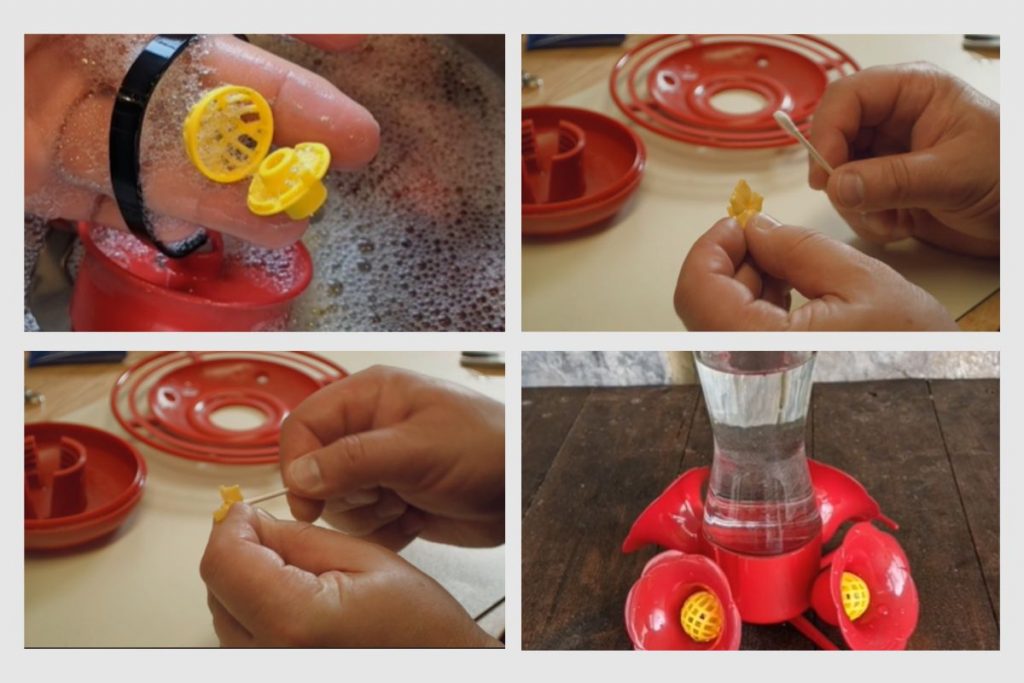If you don’t regularly change the nectar in your hummingbird feeder, it can turn bad and grow mold. This spoiled nectar can make hummingbirds very sick or even cause them to die, as it may lead to infections and provide no nutrition.
Additionally, old nectar can attract unwanted pests such as ants, bees, and wasps, which can discourage hummingbirds from visiting your feeder.
In this article, I’ll explain how often you should change your hummingbird feeder nectar, how to clean your feeder, and what the best nectar for hummingbirds is.
So, let’s get into it.
How Often Should You Change Your Hummingbird Feeder?
It is recommended that you change your hummingbird feeder every 3-4 days during periods of active feeding. In hotter climates or during breeding seasons, however, it is best to change it every two to three days in order to ensure that the nectar does not spoil or become contaminated with harmful bacteria.

Related Posts:
Best Hummingbird Feeders.
Hummingbird Feeders Comprehensive Guide.
How Do You Clean A Hummingbird Feeder?
Cleaning a hummingbird feeder is simple but essential. First, empty out any remaining nectar and rinse the feeder with hot water. Scrub away any debris or dirt with a bottle brush or similar tool. For a natural cleaning solution, you can use a mixture of vinegar and water.
Avoid using bleach if possible, as it can be harmful if not thoroughly rinsed. If you must use bleach, mix 1 part bleach with 9 parts water and rinse thoroughly several times with hot water to ensure no residue remains. Allow the feeder to air dry completely before refilling with fresh nectar.
What Is The Best Nectar For Hummingbirds?
The best nectar for hummingbirds is made from a simple mixture of sucrose (white granulated sugar) and water without any added colouring or flavourings. The ideal ratio is 1 part sugar to 4 parts water. It is crucial to make fresh sugar water regularly, as older solutions can spoil quickly and may contain harmful bacteria or fungi that could make your birds sick.
Store-bought nectars are often more expensive but may contain preservatives that help extend their shelf life, making them a convenient option. However, always check the ingredients to ensure they don’t contain artificial additives that could be harmful to hummingbirds.
Final Thought
Keeping your hummingbird feeder clean and the nectar fresh is super essential to make sure your little feathered friends stay healthy and happy. Remember, change the nectar every 3-4 days when they’re feeding a lot and every two to three days when it’s really hot or during breeding seasons.
Always clean the feeder before refilling it with fresh sugar water to keep harmful bacteria and fungi away. I hope you found this info helpful! If you did, please share the article to support us, and don’t hesitate to drop any questions in the comment section below. Thanks for watching!
References: Hummingbird, Bird Feeder.
